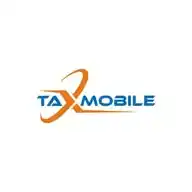
Taxmobile.Online
February 6, 2025 at 05:52 PM
A Life in Tax: The Case of the Vendor’s Payment Dilemma
In the world of tax, every transaction tells a story. Some stories are straightforward, while others are filled with twists and unexpected turns. This is one such story—a tale of an order, a new tax regulation, and a decision that could alter the course of a company’s compliance journey.
The Beginning: An Order from the Past
It was a quiet afternoon in the finance department when Ayo, the company’s tax manager, received an email that made him pause. The subject read: “Urgent: WHT on Vendor Payment?”
The email was from Tunde, the procurement officer, who reminded him of a vendor order initiated last year. The vendor had supplied goods classified as an "ordinary course of business," and, as was customary, no withholding tax (WHT) had been deducted. However, things had changed—the order was delivered this year, and payment had just been made.
Ayo’s mind immediately went to the recent 2024 WHT Regulation, issued by the Minister of Finance. He knew the rules had shifted, and he needed to decide: Should they apply the old tax treatment from when the order was placed, or follow the new WHT rules now in effect at the time of payment?
The Tax Crossroads
Ayo took a deep breath and pulled out the latest WHT regulation. As he flipped through the document, he reminded himself of a fundamental tax principle: "Withholding tax is triggered at the point of payment, not when the order was initiated."
This meant that even though the company had historically classified the vendor’s supply as exempt under the "ordinary course of business," he had to verify whether the 2024 WHT rules still recognized that exemption. If the new regulation required WHT to be deducted, then they were obligated to comply.
A Critical Decision
The finance team gathered for a quick discussion. Tunde argued, "But we never withheld tax on this vendor before. If we do now, won't it create issues?"
Ayo responded thoughtfully, "That’s true, but tax laws evolve. Our past practice doesn’t override the current law. The key question is whether the exemption still holds. If it doesn’t, we must deduct WHT, or we risk non-compliance."
To be sure, Ayo reached out to a tax consultant, who confirmed his suspicion: under the 2024 regulation, the classification of "ordinary course of business" had changed, and some previously exempt transactions were now subject to WHT.
With this confirmation, the decision was clear: the new WHT rule applied, and the company must deduct the appropriate tax before paying the vendor.
The Lesson Learned
The finance team adjusted their approach, ensuring all future payments aligned with the latest WHT regulation. As Ayo processed the vendor's payment, he reflected on the experience.
Tax is not just about numbers; it’s about timing, evolving laws, and making the right decisions at every turn.
And so, another chapter in A Life in Tax was written—one that reinforced the golden rule: Always check the law at the time of payment. Yesterday’s exemption may not be today’s compliance.
Olatunji Abdulrazaq CNA, ACTI, ACIArb(UK)
Founder/CEO, Taxmobile.Online
❤️
1